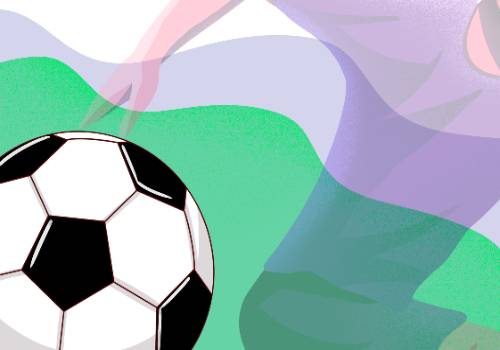佛山市霍利斯外籍人員子女學(xué)校是一所英式國際學(xué)校,為學(xué)生提供全方位的教育。其中,英國課程的核心學(xué)科之一是計算機(jī)科學(xué)。
在當(dāng)今世界,技術(shù)正在快速發(fā)展并成為我們?nèi)粘I钪胁豢苫蛉钡囊徊糠郑@讓計算機(jī)科學(xué)這門學(xué)科顯得尤為重要。擁有扎實(shí)的計算機(jī)科學(xué)基礎(chǔ)能夠幫助學(xué)生理解技術(shù)的原理,掌握正確且高效的技術(shù)使用方式。此外,學(xué)習(xí)計算機(jī)科學(xué)也有助于學(xué)生培養(yǎng)批判性思維和問題解決能力,這都是他們?nèi)蘸髮W(xué)習(xí)、生活和職業(yè)中所需的寶貴技能。
Mr Adam Stenning

(資料圖)
計算機(jī)科學(xué)
學(xué)科主任
Stenning 先生是佛山霍利斯的學(xué)術(shù)主任和計算機(jī)科學(xué)創(chuàng)始主任。自佛山霍利斯成立之初,Stenning 先生就一直在學(xué)校任教。他是一位經(jīng)驗(yàn)豐富的教師,在計算機(jī)科學(xué)和技術(shù)領(lǐng)域具有豐富的經(jīng)驗(yàn)。在加入佛山霍利斯之前,他曾在迪拜和北倫敦?fù)?dān)任科技學(xué)科主管長達(dá)5年。Stenning 先生主修計算機(jī)和網(wǎng)絡(luò)技術(shù),持有一等榮譽(yù)學(xué)士學(xué)位,并擁有超過10年的教學(xué)經(jīng)驗(yàn)。在佛山霍利斯,他致力于推廣機(jī)器人技術(shù),并希望幫助學(xué)生們在不久的將來的機(jī)器人比賽中獲勝。
1. 請您分享一下佛山霍利斯計算機(jī)科學(xué)部門迄今為止取得的一些成就。
在計算機(jī)科學(xué)部門中,我在高年級組引入了 VEX 機(jī)器人項(xiàng)目,這個蓬勃發(fā)展的項(xiàng)目在全球范圍內(nèi)得到廣泛認(rèn)可。VEX 機(jī)器人俱樂部可以提高學(xué)生的分析、解決問題和團(tuán)隊(duì)合作能力。另外,佛山霍利斯首屆 IGCSE 的全體學(xué)生在計算機(jī)學(xué)科考試中均取得 A*-B 成績的好成績!
2. 請問您如何讓計算機(jī)科學(xué)在課堂內(nèi)外都變得有趣?
為了激發(fā)學(xué)生們在課堂內(nèi)外對計算機(jī)學(xué)習(xí)的興趣,我會將計算機(jī)科學(xué)與現(xiàn)實(shí)生活聯(lián)系起來,以此展示這門學(xué)科的價值。計算機(jī)科學(xué)不是一門容易的學(xué)科,就像生活中有價值的事物也從來都不是容易得到的。在課程中,我們將理論和創(chuàng)造力相結(jié)合,讓學(xué)生在計算機(jī)科學(xué)各個領(lǐng)域的知識和技能都能有所發(fā)展。有時候,學(xué)生可能會對某個領(lǐng)域更感興趣,但這沒關(guān)系,因?yàn)槲覀兯鶎W(xué)的每個領(lǐng)域都有豐富的實(shí)踐機(jī)會。以最近八年級所學(xué)的音頻編輯為例,學(xué)生們學(xué)習(xí)計算機(jī)如何將模擬音頻以數(shù)字形式存儲在電腦中,然后學(xué)習(xí)配音藝術(shù)家的工作內(nèi)容,并各自創(chuàng)作了一條30秒的廣播。我們的目的是為學(xué)生提供堅實(shí)的基礎(chǔ),同時允許他們發(fā)揮創(chuàng)意表達(dá)自己,并了解現(xiàn)實(shí)世界的工作實(shí)踐。
3. 請問您如何幫助那些在入讀佛山霍利斯之前沒有接觸過計算機(jī)科學(xué)的學(xué)生,并幫助他們順利開展計算機(jī)科學(xué)學(xué)習(xí)呢?
我們清楚知道我們的學(xué)生來自不同的國家和不同的教育背景,可能有一些學(xué)生在入讀佛山霍利斯之前沒有計算機(jī)科學(xué)學(xué)習(xí)經(jīng)驗(yàn)。對于沒有編程經(jīng)驗(yàn)的高年級學(xué)生,我會開設(shè)一些額外的提升課程,幫助他們獲得學(xué)習(xí)課程所需的知識技能,并提升他們的自信心。對于低年級的學(xué)生,我會開展有針對性的活動,幫助他們建立對計算機(jī)科學(xué)的信心迎接課程學(xué)習(xí)。
在佛山霍利斯,學(xué)生從預(yù)備部就開始接觸學(xué)習(xí)計算機(jī)系統(tǒng)、網(wǎng)絡(luò)和安全的基礎(chǔ)知識。隨著他們的學(xué)習(xí)進(jìn)程發(fā)展,他們還會學(xué)習(xí)計算機(jī)編程、算法設(shè)計和軟件開發(fā)。
關(guān)鍵階段三(7-9年級)
學(xué)生們在預(yù)備部課程的基礎(chǔ)上進(jìn)一步學(xué)習(xí)更高級的計算機(jī)系統(tǒng),例如網(wǎng)絡(luò)和數(shù)據(jù)庫。他們還會深入學(xué)習(xí)算法,并學(xué)習(xí)如何使用更復(fù)雜的編程語言來編寫程序。
學(xué)科動態(tài)
8年級學(xué)生在完成一個音頻學(xué)習(xí)項(xiàng)目后,進(jìn)入計算機(jī)科學(xué)的標(biāo)準(zhǔn)搜索和排序算法的學(xué)習(xí)主題。這是他們學(xué)習(xí)之路上的一個重要里程碑,因?yàn)檫@些算法是許多高級計算機(jī)科學(xué)主題的基礎(chǔ),并在現(xiàn)實(shí)世界中廣泛使用。搜索和排序算法將幫助學(xué)生發(fā)展問題解決能力和批判性思維,并提供算法設(shè)計和分析的明確示例。此外,搜索和排序算法的知識在技術(shù)行業(yè)中是備受重視的技能,將為學(xué)生未來在計算機(jī)科學(xué)和相關(guān)領(lǐng)域的職業(yè)生涯做好準(zhǔn)備。總體而言,這項(xiàng)學(xué)習(xí)是學(xué)生計算機(jī)科學(xué)教育中至關(guān)重要的一部分。
關(guān)鍵階段四(10-11年級)
在這個階段,學(xué)生們學(xué)習(xí) IGCSE 計算機(jī)科學(xué),更深入地了解計算機(jī)系統(tǒng)、軟件開發(fā)、算法和編程語言。他們還會學(xué)習(xí)數(shù)據(jù)表示、計算機(jī)體系結(jié)構(gòu)和編程范式。
學(xué)科動態(tài)
11年級的學(xué)生們開始了一個非常有趣的項(xiàng)目,那就是創(chuàng)建一個面部識別的人工智能程式。這個項(xiàng)目為他們提供一個寶貴的機(jī)會,讓他們深入理解人工智能和基本編碼概念。學(xué)生們的最終作品將在課室外墻上展示,以體現(xiàn)學(xué)生們在這個領(lǐng)域的知識和技能的提升。在創(chuàng)建這個真實(shí)的應(yīng)用程式的經(jīng)歷中,他們能夠通過實(shí)踐理解人工智能的潛力及其對我們?nèi)粘I畹挠绊憽?偠灾ㄟ^這個項(xiàng)目,11年級的學(xué)生們將會收獲豐富且有價值的經(jīng)驗(yàn),并可能激發(fā)他們在人工智能領(lǐng)域的進(jìn)一步學(xué)習(xí)和發(fā)展職業(yè)的興趣。
A Level(12-13年級)
在這個階段,學(xué)生們將學(xué)習(xí) A Level 計算機(jī)科學(xué),深入探索算法、數(shù)據(jù)結(jié)構(gòu)、數(shù)據(jù)庫和編程等方面的知識。他們還會學(xué)習(xí)計算機(jī)科學(xué)的理論基礎(chǔ),如形式化方法和復(fù)雜性理論。
學(xué)科動態(tài)
12年級的學(xué)生正在從倫理的角度討論人工智能對社會和經(jīng)濟(jì)的影響,這是一個引人深思且與時俱進(jìn)的研究領(lǐng)域。隨著人工智能近期的突破和對各行業(yè)的影響,這個話題相對具有實(shí)時性和相關(guān)性。通過研究人工智能的倫理問題,學(xué)生們深入理解了這項(xiàng)技術(shù)的潛在后果以及負(fù)責(zé)任地運(yùn)用技術(shù)的重要性。這些知識將會幫助他們在未來職業(yè)生涯和社會生活中,面對人工智能帶來的挑戰(zhàn)和機(jī)遇做好準(zhǔn)備。總而言之,12年級學(xué)生對人工智能的倫理研究是非常有價值的,這將為他們提供寶貴的視角和對這個重要問題的理解。
我們的機(jī)器人俱樂部為學(xué)生提供了一個探索機(jī)器人和工程領(lǐng)域的獨(dú)特機(jī)會,讓他們在充滿樂趣的環(huán)境中培養(yǎng)創(chuàng)造力和創(chuàng)新精神。
在機(jī)器人俱樂部中,我們引入并開展了 VEX 機(jī)器人項(xiàng)目,讓學(xué)生們有機(jī)會在機(jī)器人領(lǐng)域進(jìn)行實(shí)踐。其中的任務(wù)之一就是機(jī)器拾取代幣,這能夠幫助學(xué)生們在工程原理和機(jī)械設(shè)計方面打下堅實(shí)的基礎(chǔ)。學(xué)生們完成了底盤的制作,并采用了履帶技術(shù),表明了他們對機(jī)動性和靈活性不斷有更深入的理解。履帶能夠帶來額外的機(jī)動性,讓機(jī)器人在競技場內(nèi)移動的時候提升優(yōu)勢,有助于成功完成拾物任務(wù)。總而言之,VEX 機(jī)器人項(xiàng)目為學(xué)生提供了一個絕佳的機(jī)會,帶領(lǐng)他們深入探索令人興奮的機(jī)器人世界,并在工程和問題解決方面獲得實(shí)用技能。
英國課程在全球范圍內(nèi)獲得廣泛認(rèn)可,因此 A Level 計算機(jī)科學(xué)的考試文憑能夠幫助學(xué)生在申請英國或其他國家大學(xué)課程時提供豐富的選項(xiàng)。世界各地的許多大學(xué)都開設(shè)計算機(jī)科學(xué)專業(yè)課程。由于技術(shù)在我們社會中的重要性日益增加,因此這些課程的需求量很高,競爭也相當(dāng)激烈。通過在大學(xué)學(xué)習(xí)計算機(jī)科學(xué),學(xué)生們?nèi)蘸罂梢栽谲浖_發(fā)、網(wǎng)絡(luò)安全、數(shù)據(jù)分析等廣泛領(lǐng)域開展職業(yè)生涯。
除了繼續(xù)在計算機(jī)科學(xué)領(lǐng)域繼續(xù)深造,計算機(jī)科學(xué)課程中所涉及的基本概念和技能在其他領(lǐng)域,例如金融或醫(yī)學(xué),也有用武之地。這是因?yàn)橛嬎銠C(jī)技術(shù)在這些行業(yè)的應(yīng)用不斷深化融合。
LEH International School Foshan is a British international school that prides itself on offering a well-rounded education to its students. One of the core subjects taught at the school is Computer Science, which is an integrated part of our British Curriculum.
Computer Science is a crucial subject in today"s world as technology is rapidly advancing and becoming a crucial part of our daily lives. A strong foundation in Computer Science equips students with the skills necessary to understand and use technology in a responsible and effective manner. Furthermore, studying Computer Science helps students develop critical thinking and problem-solving skills, which are valuable assets in any field they choose to pursue.
Mr Adam Stenning
Head of
Computer Science
Mr Stenning is the Director of Studies and founding Head of Computer Science at LEH Foshan. Mr Stenning has been here from the very beginning of LEHF’s creation. He is a knowledgeable and experienced educator with a focus on computer science and technology. Prior to this role, he had roles as the Technology faculty lead for over 5 years, both internationally in Dubai and locally in North London. Mr Stenning holds a First-class Hons Bachelor of Science degree in Computer and Network Technology and has over 10 years of teaching experience. At LEH Foshan, he is looking to promote robotics and aims to guide the school to win competitions in the near future.
1. Could you share some of the achievements of the CS department at LEHF so far?
Within the Computer Science department, I have introduced VEX robotics at senior level, this is an exciting and thriving club which is recognised globally. The VEX robotics club improves the students" analytical, problem solving and teamwork skills. The department scored 100% A*-B in the first IGCSE examinations of the school.
2. What do you do to make learning CS enjoyable in and out of the classroom?
In order to make CS enjoyable both inside and outside the classroom I relate CS to real life and show students the value of the subject. Computer Science is a difficult subject, but everything that is of value in life is hard. We mix a blend of theory and creativity into the curriculum to allow students to grow in all areas of CS. Sometimes students prefer one particular area of study above another area. But that’s ok, because there’s often a real-world job in every topic that we do! Take our recent topic of Sound Editing in year 8. Students learn the theory of how computers store an analogue sound in digital form on the computer and then go on to learn about foley artists and develop their own 30 second radio advert. It’s designed to give students a solid foundation whilst allowing them to express themselves creatively and see real world jobs.
3. In what ways would you assist students without prior experience in Computer Science before enrolling in LEH Foshan to access the curriculum?
We understand that our international students are from various educational backgrounds and may not have Computer Science learning experience when they join LEH Foshan. I hold additional intervention classes for older students that have not had the required coding experience. This gives them the confidence to improve in a space where their needs can be better addressed. Younger students are given differentiated activities to build their confidence and access the curriculum.
At LEH Foshan, students are taught the basics of computer systems, networks, and security starting from Prep School. They also learn about computer programming, algorithm design, and software development as they progress.
Key Stage 3 (Years 7-9)
Students build on their knowledge from Key Stage 2 (Prep School) and learn about more advanced computer systems, such as networks and databases. They also study algorithms in more depth and learn how to write programs in more complex programming languages.
Latest Update
Year 8 students have completed a sound project and are now moving on to study standard searching and sorting algorithms in computer science. This is an important step in their education as these algorithms form the basis of many advanced topics in computer science, and are used in real-world problems. The study of searching and sorting algorithms will help students develop problem-solving skills and critical thinking abilities, and provide a clear example of algorithm design and analysis. Additionally, knowledge of searching and sorting algorithms is a highly valued skill in the technology industry and will prepare the students for future careers in computer science and related fields. Overall, this study is an essential part of the students" computer science education.
Key Stage 4 (Years 10-11)
In this stage, students study IGCSE Computer Science and learn about computer systems, software development, algorithms, and programming languages in greater depth. They also learn about data representation, computer architecture, and programming paradigms.
Latest Update
The Year 11 students are embarking on an exciting project to create a smile recognition artificial intelligence in their lessons. This project will provide them with a valuable opportunity to develop their understanding of artificial intelligence and fundamental coding concepts. The final product, which will be displayed on the wall outside the classroom once completed, will showcase the students" growing knowledge and skills in this field. The experience of creating a real-world application will provide them with a hands-on understanding of the potential of artificial intelligence and its impact on our daily lives. Overall, this project will be a valuable and enriching experience for the Year 11 students and will likely inspire them to pursue further studies and careers in the field of artificial intelligence.
A Level (Years 12-13)
At this stage, students study A Level Computer Science and cover topics such as algorithms, data structures, databases, and programming in greater detail. They also learn about the theoretical foundations of computer science, such as formal methods and complexity theory.
Latest Update
The Year 12 students have been engaged in a thought-provoking and relevant area of study, exploring the ethical considerations of AI on society and the economy. With the recent surge of news about the advancements of AI and its impact on various industries, this topic is particularly timely and relevant. By studying the ethical considerations of AI, the students are gaining a deeper understanding of the potential consequences of this technology and the importance of responsible implementation. This knowledge will help prepare them for the challenges and opportunities that AI presents in their future careers and in society as a whole. Overall, the Year 12 students" study of the ethical considerations of AI is commendable and will provide them with a valuable perspective on this important issue.
Our Robotics Club provides students with a unique opportunity to explore the world of robotics and engineering. The goal is to foster creativity and innovation in a fun and engaging environment.
The VEX Robotics programme in the Robotics Club is offering students a valuable, hands-on experience in the field of robotics. The emphasis on mechanically picking up tokens provides a solid introduction to engineering principles and mechanical design. The students" completion of the chassis, particularly with the implementation of tank treads, showcases their developing understanding of mobility and manoeuvrability. The additional mobility from the tank treads will likely prove to be a significant advantage in terms of movement within the arena, and will play a crucial role in their success. Overall, the VEX Robotics programme is a fantastic chance for students to delve into the exciting world of robotics and acquire practical skills in engineering and problem-solving.
As the British Curriculum is well-regarded globally, an A Level qualification in Computer Science opens up many opportunities for students for higher education, both in the UK and abroad. Many universities around the world offer courses in Computer Science, and these courses are in high demand due to the increasing importance of technology in our society. Studying Computer Science at a university level opens up a wide range of career opportunities, including software development, cybersecurity, data analysis, and many others.
The fundamental concepts and skills students learn from our Computer Science programme are not only useful for those who wish to pursue higher education in technology but also for those who wish to pursue other areas, such as finance or medicine, as technology is becoming increasingly integrated into these industries
關(guān)鍵詞:


















 營業(yè)執(zhí)照公示信息
營業(yè)執(zhí)照公示信息